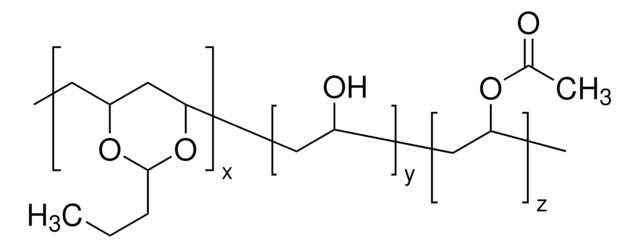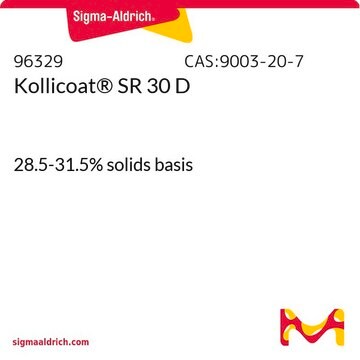42385
Kollicoat® MAE 30 DP
46.0-50.6% methacrylic acid basis (calc. on solids content)
Synonym(s):
Methacrylic acid copolymer dispersion, Methacrylic acid-ethyl acrylate copolymer (1:1) dispersion 30 %
About This Item
Recommended Products
Quality Level
concentration
46.0-50.6% (methacrylic acid, calc. on solids content)
impurities
≤1 ppm arsenic (verified on random samples only)
≤1.00% coagulum content /particulate matter
≤10 ppm heavy metals (verified on random samples only)
ign. residue
≤0.1%
evapn. residue (140 °C, 30 min.)
28.5-31.5%
loss
68.5-71.5% loss on drying, 140°C, 30 min.
pH
2.1-3.0
viscosity
≤15 mPa.s(20 °C) (apparent viscosity)
3-15(20 °C) (mm2/s)
density
1.062-1.072
SMILES string
O(CC)C(=O)C=C.OC(=O)C(=C)C
InChI
1S/C5H8O2.C4H6O2/c1-3-5(6)7-4-2;1-3(2)4(5)6/h3H,1,4H2,2H3;1H2,2H3,(H,5,6)
InChI key
GDCRSXZBSIRSFR-UHFFFAOYSA-N
Application
Analysis Note
Legal Information
Choose from one of the most recent versions:
Already Own This Product?
Find documentation for the products that you have recently purchased in the Document Library.
Customers Also Viewed
Our team of scientists has experience in all areas of research including Life Science, Material Science, Chemical Synthesis, Chromatography, Analytical and many others.
Contact Technical Service










